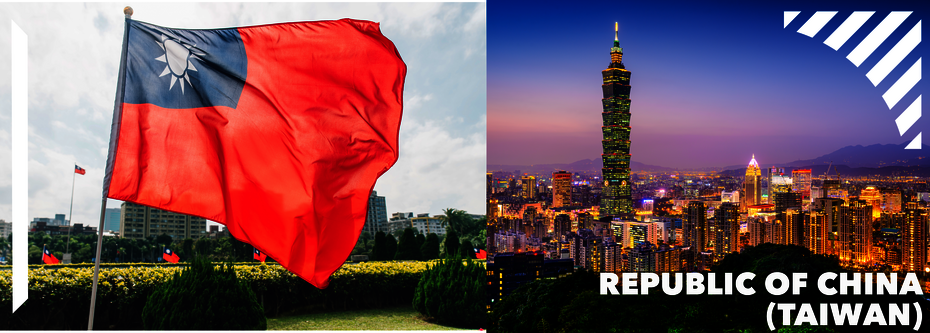Commitment to the well-being of the region
The Republic of China (Taiwan) is one of CABEI’s first non-regional allies and its largest shareholder. Since officially becoming a member in 1992, this country has actively supported the Central American region through cooperation and financing in essential sectors such as agriculture, food security, education, poverty reduction, infrastructure, health and promotion of MSMEs, with accumulated historical contributions amounting to USD238.8 million.
The Republic of China (Taiwan)’s membership strengthened the Bank’s capital structure and fostered the expansion of its shareholder base, serving as a strong reference for other countries to consider joining CABEI. This relationship also allowed the Bank to issue and place bonds for the first time in international markets. By the end of 2023, CABEI has placed 25 bond issues in the Taiwanese capital market, reaching a total of USD3.17 billion. Such activity positions this market as the Bank’s second most relevant source of funds from bond issuance in capital markets.
In addition to its financial contribution, the Republic of China (Taiwan) has played a key role in addressing critical situations in the region. A notable example was the signing of two cooperation contracts with the Bank for a total of USD130 million in 2020 to address the COVID-19 pandemic and boost Central America’s economic recovery. This action represented the most significant contribution made by this member to the region to date.
Another showing of this non-regional member’s commitment to regional growth was the early payment of the first capital installments associated with its two subscriptions under the VIII General Capital Increase, totaling USD8.6 million, made in 2021.
The active participation of the Republic of China (Taiwan) in CABEI’s capital structure has further strengthened its equity base. Its ability to provide extraordinary support has been a key factor in the Bank’s international risk rating upgrade by Standard & Poor’s from “AA” to “AA+”.
In 2021, CABEI opened its representative office in the Republic of China (Taiwan).
CABEI’s Board of Directors approves resources for US$130.0 million with the Republic of China (Taiwan)

The resources may be used in MSMEs affected by COVID-19 and public sector projects in Guatemala, Honduras, Nicaragua and Belize.
Tegucigalpa August 25, 2020. - The Board of Directors of the Central American Bank for Economic Integration (CABEI) approved today the signing of two loan contracts for an aggregate amount of US$130.0 million with the International Cooperation and Development Fund (TaiwanICDF) of the Republic of China (Taiwan).
The resources of both contracts will be used to finance eligible operations under the Emergency Support and Preparedness Program for COVID-19 and Economic Reactivation approved by CABEI on March 31, 2020.
The first contract for an amount of up to US$50.0 million will allow CABEI to finance eligible operations within the framework of Component 3 called “Credit for Public Sector Operations Financing” of the Republics of Guatemala, Honduras, Nicaragua and Belize.
The second contract for an amount of up to US$80.0 million will allow CABEI to finance eligible operations within the framework of Component 5 called “Facility to Support the Financial Sector for the Financing of Micro, Small and Medium-sized Enterprises (MSMEs) affected by the COVID-19 crisis”.
CABEI’s Executive President, Dr. Dante Mossi highlighted the importance of the Republic of China (Taiwan) for CABEI in its mission to contribute to the balanced economic and social development of the Central American region. The cooperation that this country has provided through the Bank has focused on areas such as Food Security, Agricultural Sector, Education, and MSMES Financing.
The Republic of China (Taiwan) is the extra-regional partner with the highest CABEI shareholding with 10.77%. Its participation demonstrates its commitment to the Central American region, which is confirmed by the two loan contracts approved today.




